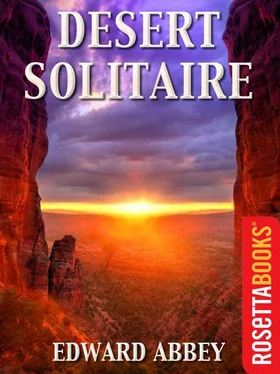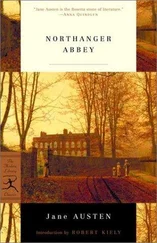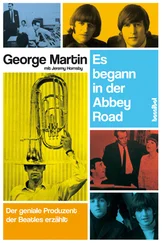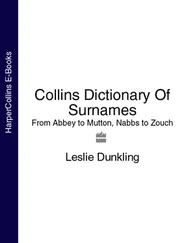Abbey, Edward - Desert Solitaire (Edward Abbey Series )
Здесь есть возможность читать онлайн «Abbey, Edward - Desert Solitaire (Edward Abbey Series )» — ознакомительный отрывок электронной книги совершенно бесплатно, а после прочтения отрывка купить полную версию. В некоторых случаях можно слушать аудио, скачать через торрент в формате fb2 и присутствует краткое содержание. Год выпуска: 2011, Издательство: RosettaBooks, Жанр: Старинная литература, на английском языке. Описание произведения, (предисловие) а так же отзывы посетителей доступны на портале библиотеки ЛибКат.
- Название:Desert Solitaire (Edward Abbey Series )
- Автор:
- Издательство:RosettaBooks
- Жанр:
- Год:2011
- ISBN:нет данных
- Рейтинг книги:4 / 5. Голосов: 1
-
Избранное:Добавить в избранное
- Отзывы:
-
Ваша оценка:
- 80
- 1
- 2
- 3
- 4
- 5
Desert Solitaire (Edward Abbey Series ): краткое содержание, описание и аннотация
Предлагаем к чтению аннотацию, описание, краткое содержание или предисловие (зависит от того, что написал сам автор книги «Desert Solitaire (Edward Abbey Series )»). Если вы не нашли необходимую информацию о книге — напишите в комментариях, мы постараемся отыскать её.
Desert Solitaire (Edward Abbey Series ) — читать онлайн ознакомительный отрывок
Ниже представлен текст книги, разбитый по страницам. Система сохранения места последней прочитанной страницы, позволяет с удобством читать онлайн бесплатно книгу «Desert Solitaire (Edward Abbey Series )», без необходимости каждый раз заново искать на чём Вы остановились. Поставьте закладку, и сможете в любой момент перейти на страницу, на которой закончили чтение.
Интервал:
Закладка:
By noon the clouds are forming around the horizon and in the afternoon, predictable as sunrise and sunset, they gather in massed formations, colliding in jags of lightning and thunderous artillery, and pile higher and higher toward the summit of the sky in vaporish mountains, dazzling under the sunlight. Afterward, perhaps, comes a little rain—that is, a violent cloudburst above some random site in the desert, flooding arroyos and washes with torrents of mud, gravel and water in equal parts, a dense mixture the color of tomato soup or blood which roars down the barren waterways to the river, leaving the land an hour later as dry as it was before. The clouds melt away, the thunder fades and the sun breaks through again, blazing with redoubled intensity upon sand and rock and scattered, introverted shrub and tree. Rainy season in the canyonlands.
These brief thundershowers are not entirely without effect: I can see these days a dull green fuzziness spreading like a mold across the distant swales of Salt Wash Valley. Near at hand are a few of the plants responsible for that coloration—the tumbleweed or Russian thistle, hairy and prickly, unpleasant both to touch and eye. At the same time the ground is being prepared for a more wholesome growth, the September resurgence of rabbitbrush, sunflower, aster, wild buckwheat and matchweed.
With evening come elaborate sunsets in every named and unnamed hue of gold, purple, crimson, green, orange and blue, spread out for fifty or a hundred miles among the floating ranks of clouds, with spokes of light radiating across the sky all the way from the western to the eastern horizon. Often the sunset is reflected not only on the mountain peaks, standing like islands in a sea of twilight, but also on ranges of clouds to the east, where the changing colors can be seen—along with flashes of silent, sudden heat lightning—long after they have faded out completely in the west.
This is the time, in these semihumid August evenings after rain, when a few nighthawks will leave their daytime hiding places to climb and circle and dive through the air, feeding on high-flying insect life invisible from the ground. Of the genus Chordeiles , related to the nightjar and the goatsucker (most birds have fantastic names), the nighthawks resemble in size and conformation the swallow rather than the hawk, while in their style of flight, constantly swooping and darting, they are also like bats. Now and then a nighthawk, high in the air, will fold wings and plunge earthward; the noise of the wind rushing through its feathers when the bird extends wings and pulls out of the dive is like a distant roar, a bovine bellow. And so, among its many other names, the nighthawk Chordeiles minor is also called a bullbat, at least in the Southwest.
They feed in the twilight between evening and night and again in that similar twilight, unknown to most Americans, between dawn and sunrise, at which times aerial insects are most abundant. In my sack on the cot out back of the trailer I am awakened many a morning by the sound of their wild cries and thrilling plunges through the air. I open my eyes and see the summer constellations, pale, dim, oddly misplaced in the sky—the Big Dipper, for example, half sunk beyond the northern horizon. At first I think it is still night but looking east I see a premonition of day in the greenish streaks of light spread out along the rim. False dawn? No, for I also see the nighthawks skating across the sky against the glow, a sure sign of the coming sunrise.
Another kind of music sometimes fills the early hours. Almost every morning for a week I have been honored by the serenade of a den of coyotes—a family perhaps—somewhere about a mile to the west of my camp. Weird, unearthly song—like the legendary wail of banshees, or more precisely, like the sounds produced by new electronic instruments such as the cithare and Onde Martinote .
Occult music is but a part of the coyotes’ repertoire: they vary the program with more conventional howls, yelps and barks when it pleases them to do so. Usually they stop their singing and retire into the rocks, out of caution, soon after the sun comes up.
I’m not going to look for their lair, for that might frighten them away, and we need coyotes, need them badly, in Arches National Monument. As does the nation as a whole, for that matter. We need coyotes more than we need, let us say, more people, of whom we have already an extravagant surplus, or more domesticated dogs, which in all fairness could and should be ground up into hamburger and used as emergency coyote food, to raise their spirits and perhaps improve the tenor of their predawn howling.
This morning I am requested via the shortwave radio to join a manhunt. Not for some suspected criminal or escaped convict but for a lost tourist whose car was found abandoned two days ago in the vicinity of Grandview Point, about fifty miles by road from my station in the Arches.
Grateful for the diversion, I throw canteens and rucksack into the government pickup and take off. I go west to the highway, south for three miles, and turn off on another dirt road leading southwest across Dead Horse Mesa toward the rendezvous. There I find the other members of the search party holding a consultation: Merle and Floyd from park headquarters, the county sheriff and one of his deputies, a relative of the missing man, and my brother Johnny who is also working for the Park Service this summer. At the side of the road is a locked and empty automobile, first noted two days earlier.
Most of the surface of this high mesa on which our man has disappeared is bare rock—there are few trails, and little sand or soft earth on which he might have left footprints. There are, however, many washes, giant potholes, basins, fissures and canyons in which a man could lose himself, or a body be hidden, for days or years.
There is also the abyss. A mile from where we stand is the mesa’s edge and a twelve-hundred-foot drop straight down to what is called the White Rim Bench. From there the land falls away for another fifteen hundred feet or more to the Colorado River. If he went that way there won’t be much left worth looking for. You could put it all in a bushel sack.
Learning from the relative—a nephew—that the missing man is about sixty years old, an amateur photographer who liked to walk and had never been in the Southwest before, we assume first of all that the object of the search is dead and that the body will be found somewhere along the more than twenty miles of highly indented rimrock that winds northwest and northeast from Grandview Point.
The assumption of death is made on the grounds that an airplane search by the sheriff failed to find any sign of the man, and that at least two days and possibly more spent in the desert in the heat of August with only what water (if any) he could carry is too much for a man of sixty, unfamiliar with the terrain and the climate.
We begin the search by dividing as evenly as we can the area to be investigated. Assigned the southernmost sector, my brother and I drive down the road another five miles to where it dead-ends close to the farthest reach of the mesa—Grandview Point itself. Here we share our water supply and split up, Johnny hiking along the rim to the northwest and I taking the opposite way.
All morning long, for the next four hours, I tramp along the rim looking for the lost tourist. Looking for his body, I should say—there seems little chance of finding him still alive. I look in the shade of every juniper and overhanging ledge, likely places to find a man besieged by thirst and sun. I look in the gullies and fissures and in the enormous potholes drilled by wind and sand in the solid rock—holes like wells, with perpendicular sides… mantraps.
At times I step to the brink of the mesa and peer down through that awful, dizzying vacancy to the broken slabs piled along the foot of the wall, so far—so terribly far—below. It is not impossible that our man might have stumbled off the edge in the dark, or even—spellbound by that fulfillment of nothingness—eased himself over, deliberately, in broad daylight, drawn into the void by the beauty and power of his own terror…?
Читать дальшеИнтервал:
Закладка:
Похожие книги на «Desert Solitaire (Edward Abbey Series )»
Представляем Вашему вниманию похожие книги на «Desert Solitaire (Edward Abbey Series )» списком для выбора. Мы отобрали схожую по названию и смыслу литературу в надежде предоставить читателям больше вариантов отыскать новые, интересные, ещё непрочитанные произведения.
Обсуждение, отзывы о книге «Desert Solitaire (Edward Abbey Series )» и просто собственные мнения читателей. Оставьте ваши комментарии, напишите, что Вы думаете о произведении, его смысле или главных героях. Укажите что конкретно понравилось, а что нет, и почему Вы так считаете.












